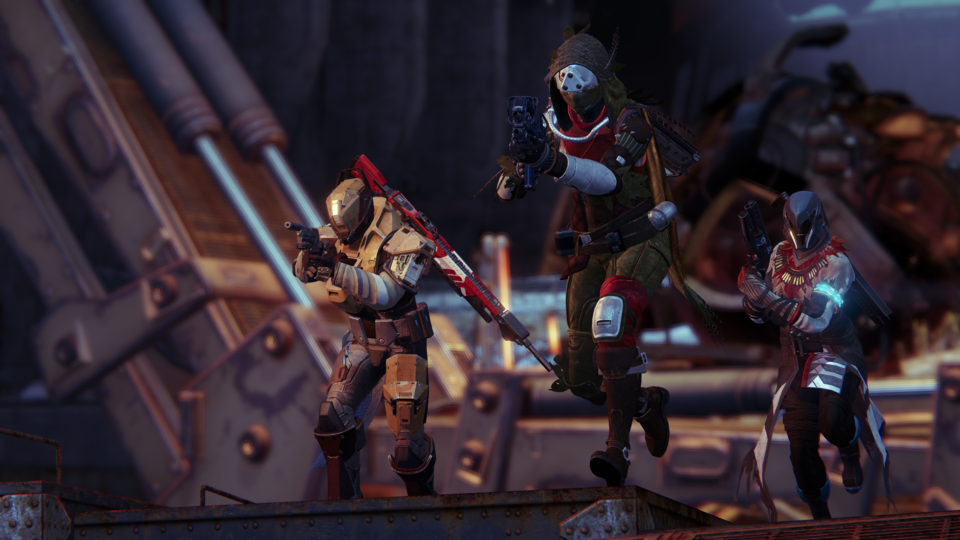
The Metal Gear series is my favorite franchise in AAA gaming. I rank Metal Gear Solid 2: Sons of Liberty as number two on my vaguely arbitrary list of best games ever made. (For the record, number one is Planescape: Torment). Last year, knowing that The Phantom Pain was on the way, I made a vow to myself. I wasn’t going to talk about the game or the series in any serious capacity. Discussion around the game was getting sidetracked by talk of Kojima as auteur and his readily apparent inability to address certain subject matter maturely. I thought it was distracting. People were ignoring the content of the games in favor of arguments about the man. It was getting to the point that I didn’t ever really want to admit that I liked Metal Gear. I felt wrong for liking it. I felt guilty.
I realized that shying away from the conversation benefited me in no way and I certainly wasn’t doing myself favors by failing to examine the source of my guilt. We all have guilty pleasures. Various series that we enjoy in spite of their failings or the public perception tied to them. Informally asking on Twitter, I had all sorts of things tossed my way as people told me what their guilty pleasures were. The Modern Warfare series, 80’s anime, dating sims, pro wrestling, Destiny. There were plenty of answers. Looking over them all and considering my own relationship with Metal Gear, I realized that there are two forms of guilty pleasure and each require us engage in a certain type of reflection.
In something like my relationship with Metal Gear, I needed to understand that I felt guilty for a reason. The fact of the matter is that Metal Gear games have more damning troubles than just lengthy cutscenes, over-the-top plots, and occasional poop jokes. The series has legitimate issues with women. I was cognizant of them and even found certain moments distasteful, but I hadn’t really engaged with that discomfort. I might be far more interested in Quiet as a character within a story, but I also needed to sit back and acknowledge that the camera treats her as a sexual object. Quiet’s an interesting and commanding character but this objectification dramatically damages her use in the narrative. This is not a new problem with Kojima. I find Guns of the Patriots’ boss fight against Laughing Octopus to be a very interesting and metatextually relevant remix of previous occurring elements in the series. I also find her intense objectification to be in amazingly poor taste. It doesn’t enhance the game or elevate themes. It’s not commentary. It’s tone deaf. It’s base.
Knowing something is not the same as admitting it, though. It isn’t the same as really digesting the information. And while there’s still a part of me that rolls my eyes every time a new quip about Quiet’s outfit crosses my Twitter feed--even now, months later--I can’t ignore it. Well, I mean, I could but I wouldn’t be helping myself at all.

Sometimes, a guilty pleasure makes you feel guilty because there’s actual stuff to feel bad about. Someone who loves the Modern Warfare series for its smooth gunplay might also find the varying forms of jingoism found in certain titles to be off-putting or even guilt inducing. Healthy media consumption demands that guilt is properly contextualized. It calls for deep introspection. For some of us, this is hard. We don’t want to admit that there may be something wrong in a thing we love. But finding fault in something doesn’t mean you have to give it up or stop loving it. That’s the part some people don’t understand. My discomfort with Metal Gear stems from my beliefs as a feminist, but that discomfort doesn’t mean I can’t still find the series worthy of my time as a fan and critic.
Hell, my passion for Sierra adventure games means that there’s quite a few Leisure Suit Larry games that I enjoy even though a title like Shape Up or Slip Out has a terrible attitude towards trans women that treats them as jokes or freaks. As someone working on my own transition, I’m repulsed but I can also work through my relationship with that title to understand and compartmentalize the things that I like from the things that deserve my scorn. I’m not going to sit here and say “You don’t need to feel guilty.” Rather, you just need to understand why you are feeling guilty, if you are.
What is or isn’t a guilty pleasure changes deeply from player to player. Consider the case of Destiny. Someone told me that it was their guilty pleasure and it surprised me. Not because I think that Destiny is particularly great but because I’d venture to say that the feeling of guilt did not come from persistent discomfort with source material that bothered them morally or personally but because they’d bought into some type of paradigm that taught them that Destiny was bad and that they should feel bad for playing it. It may seem contrary to my previous statements but I do think there may be times where guilty pleasures are a by product of a judgmental community seeking to impose particular values. I can think of no community more judgmental and more adamant about what is or isn’t a good thing than the community of video game enthusiasts. No doubt there is someone out there thinking: “Well, Destiny sucks and that person should feel bad!” and that’s a huge problem.

We shouldn’t just be asking ourselves why certain things make us feel guilty; we should also ask ourselves if we’re ever making other people feel bad about certain things and if we are, then why? Understanding that it’s possible for others to make you feel bad about enjoying a certain thing also means understanding that you can err in the same way. The important thing is that we are willing to examine our guilty pleasures while also doing our best to allow other enthusiasts to foster their own healthy engagement with, and challenge, them. There is nothing productive found in merely shaming people for the things they like. Be mindful that the relationship between a game and a player is unique to each person. Focus on explaining your experiences and talking about what a game, or any piece of art, makes you feel. Make your thoughts easy to understand and make yourself approachable and amicable to discussion.
We should be honest how we feel about a game while also keeping in mind that not everyone will feel the same way. Indeed, people can find they have the same guilty pleasure for different reasons. Empathy serves well here. Don’t assume everyone thinks the same as you do. Don’t dismiss honestly expressed opinions about a game if they are different than your own. Understand your own biases. Take time to understand those of other people. This doesn’t mean agreeing with every viewpoint, it means listening to them in earnest or else risk making an unfortunate judgement call.
Guilty pleasures are more than things we surreptitiously enjoy and certainly nothing to mock each other over. They are opportunities for us to reconsider our own biases and feelings. Take the time to sit down and really grapple with your guilty pleasures and you might just walk away a better person.
Heather Alexandra is a Giant Bomb contributor whose work has also been featured at Paste Magazine, Kotaku, ZAM, and more. You can listen to her chat with Austin on this episode of Giant Bomb Presents. She can be found on Twitter at @transgamerthink or at her personal blog, TransGamer Thoughts.